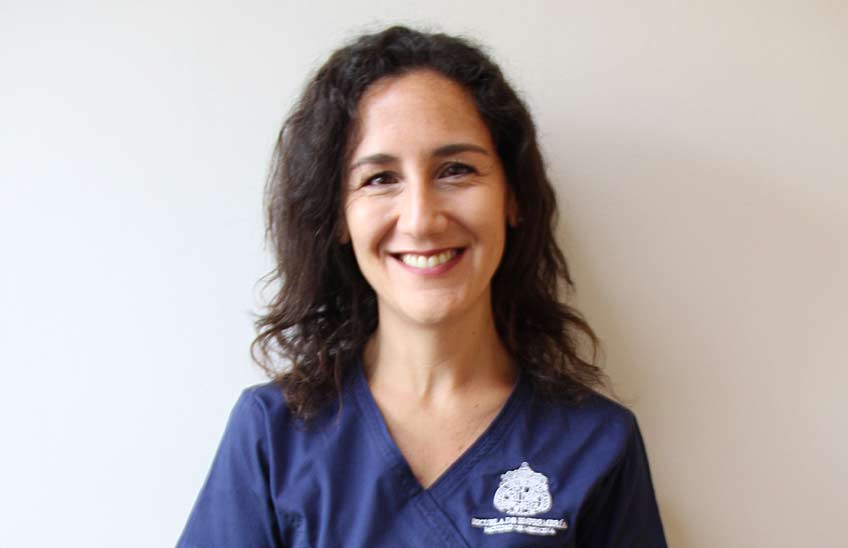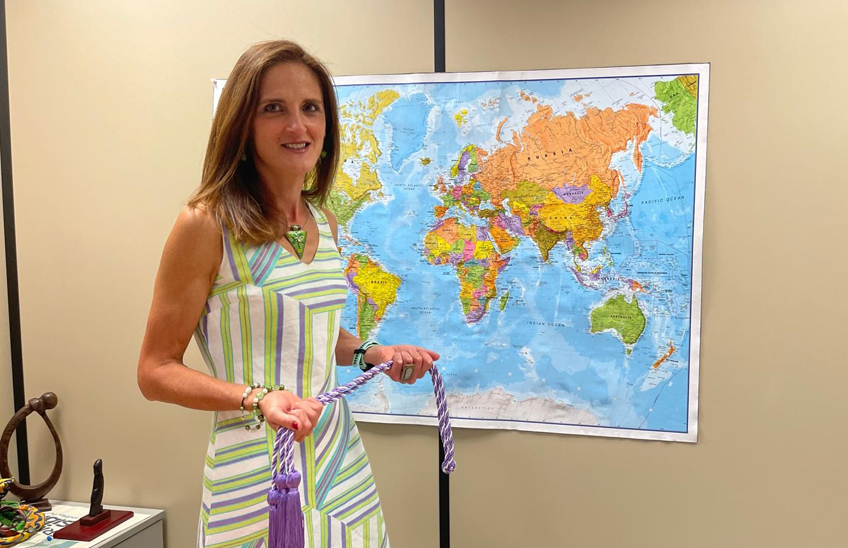A researcher from the School Nursing Department promotes the CRIAA programme to support breastfeeding.
Camila Lucchini has confirmed that this programme financial aid maintains and restores exclusive breastfeeding up to 6 months in 67% of the participants.

FotoCedida/CamilaLucchini
23 | 06 | 2021
In her doctoral thesis - defended at the School of Nursing at the University of Navarra - Camila Lucchini Raies has implemented a novel programme, called CRIAA, which has been shown to help maintain and recover exclusive breastfeeding up to 6 months in 67% of participants.
The goal of this research - supported by the framework of development of complex interventions of the Medical Research Council and developed in her country, Chile - has consisted of proposing an original, comprehensive and complex intervention that addresses the contextual and organisational factors for promote breastfeeding from a approach multidisciplinary and family. "One of the most innovative aspects that we incorporated was to consider the participation of the mother and her partner or family in a significant way from the beginning, integrating professional care into the mother's support network ", explains the nursing graduate.
"In this way we demystify the fact that breastfeeding is only the mother's responsibility and we incorporate the family into a caring environment where breastfeeding ceases to be just a form of infant feeding and becomes a behaviour that promotes family health", emphasises the new doctor in Nursing from the academic centre.
To this end, the participants of the intervention group - 20 women in the control group and 24 in the intervention - received a breastfeeding workshop during the third trimester of pregnancy and virtual support on breastfeeding and self-efficacy during the six months after childbirth. "Health professionals were also trained to deliver the intervention, which had a significant effect on professional self-efficacy and breastfeeding knowledge , both on the part of the professionals and the mothers," Camila highlights.
The crucial role of the Whatsapp support group
One of the most innovative components of the programme was the virtual support group via Whatsapp: "It started as a space for mutual support and gradually became a place of welcome and support, where people could clear up their doubts and find other people living the same situation as them. Then came the pandemic, health controls for children were suspended and group became even more important because it was the only way for mothers to clarify their doubts," explains the graduate from the Pontificia Universidad Católica de Chile.
Through group - which the mothers entered after giving birth and where they remained until the babies were six months old - weekly messages were sent to them to reinforce their self-confidence, their self-efficacy in relation to breastfeeding, and to resolve their doubts, etc.
"With this project we try to address one of the critical points in establishing and maintaining breastfeeding, namely the role of timely support and timely and continuous financial aid to the mother. When this fails, there is a high risk of early abandonment of breastfeeding. In fact, despite the recommendations of organisations such as the WHO and UNICIF to maintain exclusive breastfeeding at least until the baby is six months old - due to the unquestionable benefits for children's health and the social repercussions this entails - only 38% of families worldwide achieve this", concludes the new doctor in Nursing from the University of Navarra.

